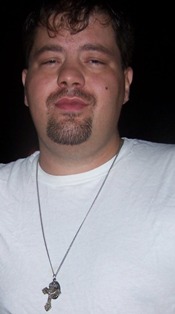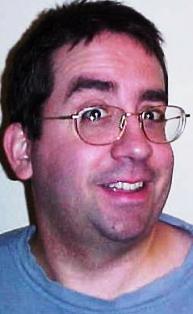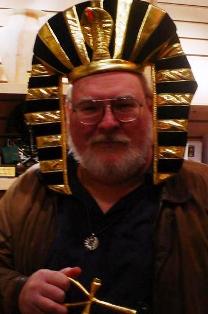 EDITOR: The following articles are a follow up to this post earlier from this week on Monday in regards toward the current legal heresy and political future of Dont Ask Dont Tell.
EDITOR: The following articles are a follow up to this post earlier from this week on Monday in regards toward the current legal heresy and political future of Dont Ask Dont Tell.
In the previous post, on the 15th of December, I made specific commentary in reference to the President elect, Barack Hussein Obama, that:
He opposes DADT; but he first wants consensus from the Joint Chiefs of Staff?.....Personally, Mr. President Elect, it is not the Joint Chiefs you should be consulting; it is the thousands of gays and lesbians currently serving in silence with honour but yet also disgrace that you should be talking to.On the same day, came this article, that quotes the Chairman of the Joint Chief's thoughts on DADT:
Challenges and Perhaps More Influence for Chairman of Joint ChiefsMr. Obama has repeatedly advocated repeal of military's policy for gays but is willing to "take his time to build consensus for a change" within the military. As I also stated in last Mondays post: "They now ask the Courts to push it through for a Constitutional showdown in the Supreme Court, so no one actually has to act with the Executive or Legislative powers, and get the bad rap amongst their religious conservative base, for turning it over themselves. It is almost like they want the Courts to do the dirty work for them."
By ELISABETH BUMILLER
WASHINGTON — As President-elect Barack Obama convened the first meeting of his national security advisers on Monday, there was just one person at the table whom Mr. Obama did not choose to have there: Adm. Mike Mullen, the chairman of the Joint Chiefs of Staff. Admiral Mullen, who was selected by Defense Secretary Robert M. Gates for a two-year term, has been on the job for a year. Come January, he will face perhaps the biggest challenge of his career: pivoting from one commander in chief to another, in the middle of two wars. Friends describe him as an even-tempered, intellectually curious and politically astute presence who sees the world beyond the immediate battles of the Pentagon and the White House, all skills that they say will serve him well in the new administration.
“I’m encouraged by the fact that he said he’s going to listen to his military commanders,” Admiral Mullen said of Mr. Obama in a recent telephone interview, recounting a meeting he had with the president-elect on Nov. 21 in Chicago. The admiral declined to discuss the substance of the conversation other than to say “it was a good initial meeting — we talked about a lot of things.”He discounted any concern on the part of senior commanders that Mr. Obama had not served in the military. “By and large, I’ve found that those who really care about us and learn about us and are supportive of the military, having served in the military isn’t a requirement,” Admiral Mullen said.
In preparation for his new commander in chief, Admiral Mullen is overseeing the final stages of a comprehensive military strategy review of the border region of Afghanistan and Pakistan — one of four such studies in the government — to guide Mr. Obama in his first days as president. More quietly, he has also had initial conversations with his top commanders about potential changes in the “don’t ask, don’t tell” law that allows gay men and lesbians to serve in the military as long as they keep their sexual orientation secret.
Mr. Obama has taken a strong stand against the law as a moral issue, although his team has signaled that he will not push for its repeal in the early months of his administration to avoid the kind of blowup that engulfed President Bill Clinton when he sought to lift an outright ban on gay men and lesbians in the military in his first days in office. (In a cautionary tale for Admiral Mullen, that 1993 storm raged in part because Gen. Colin L. Powell, who was the holdover chairman of the Joint Chiefs from the first Bush administration, publicly disagreed with what became a Clinton compromise solution of “don’t ask, don’t tell.”)
Fifteen years later, Mr. Obama is of the view that “don’t ask, don’t tell” is long out of date and that it is time for gay men and lesbians to serve openly. “The president-elect’s been pretty clear that he wants to address this issue,” Admiral Mullen said in the interview. “And so I am certainly mindful that at some point in time it could come.” A friend of Admiral Mullen said the admiral had begun to think about practical implications like housing, but Admiral Mullen said there had been no formal planning or task forces on the issue.
SOURCE: NEW YORK TIMES [...abridged for brevity....]
The actual legal precedent from Major Margaret Witt's case, as previously updated last Monday, and originally covered in this forum back in May and again highlighted on F6 in mid July, is what will throw DADT into a Constitutional showdown at the Supreme Court very soon. Currently, as the standing precedent reads, as the 9th Circuit's decision found, that:"... the U.S. Supreme Court's 2003 ruling overturning state laws against gay sex established a new level of constitutional protection for gays and lesbians. Under that standard, the appeals court said, the military can't automatically discharge all openly gay soldiers, but must prove in each case that dismissal would promote troop readiness or unit cohesion...."
 On Thursday, the 4th of December, the Ninth United States Circuit Court of Appeals "failed to achieve" the 14 of 27 votes needed to rehear the case from May, in front of an 11 judge panel.
On Thursday, the 4th of December, the Ninth United States Circuit Court of Appeals "failed to achieve" the 14 of 27 votes needed to rehear the case from May, in front of an 11 judge panel. The Air Force has 90 days to appeal to the Supreme Court or allow the ruling to become binding on federal courts in the Ninth Circuit, which includes California and eight other states. Even if the Bush administration appeals before leaving office, Obama could withdraw the appeal.I will once again assert that, "the American people should be ashamed that their elected representatives are taking the easy road home and not standing up for our fundamental principles that, all men are created equal, (and for refusing to admit) how negligent Dont Ask Dont Tell really is in the lives of our Service Members and what a scorching wound it is to the honour of their sacrifice for our freedom and liberty."
During the presidential campaign, Obama said gays and lesbians should be allowed to serve openly in the military. In an April 2008 interview with the Advocate, a gay publication, Obama said there was "increasing recognition within the armed forces that this (policy) is a counterproductive strategy." He added that the nation is spending "large sums of money to kick highly qualified gays or lesbians out of our military, some of whom possess specialties like Arab-language capabilities that we desperately need."
Obama would need congressional action to repeal the policy. But he could move in that direction on his own by deciding not to appeal the Ninth Circuit ruling, which could encourage challenges to "don't ask, don't tell" elsewhere. Other circuits have upheld the policy, but only one, the First Circuit in Boston, has done so since the 2003 Supreme Court ruling.
SOURCE: Court's ruling stands on 'don't ask' doubts
by Bob Egelko, Chronicle Staff Writer, 05 DEC 08
Battle ahead over 'don't ask, don't tell' rule
By John Marelius | The Union Tribune of San Diego, CA | 07th December 2008
Staff writer Steve Liewer contributed to this report.
Still smarting from the unsuccessful same-sex marriage battle in California, some gay-rights activists are turning to another front: repealing the so-called “don't ask, don't tell” policy that prevents gays and lesbians from serving openly in the U.S. military. Last month, President-elect Barack Obama and nearly 30 new congressional Democrats were elected, giving activists hope that the 15-year-old policy can be overturned.
“I think the election of Barack Obama is a sea change in terms of moving the issue forward,” said Aubrey Sarvis, executive director of the Servicemembers Legal Defense Network, which is dedicated to ending the policy and assisting military personnel affected by it. “I think 'don't ask, don't tell' can be repealed in the next Congress.” Democrat Obama, who repeatedly advocated ending the policy during his campaign, has also signaled that he intends to take his time to build consensus for a change within the military.
“I know that Barack Obama is committed to raising this issue,” Rep. Susan Davis told a recent fundraising reception for the legal defense network in Mission Hills. “I also know that he's got a very full plate.” Davis, a San Diego Democrat who chairs the Subcommittee on Military Personnel of the House Armed Services Committee, is a strong advocate of the change. “There are many people, as you all know, who want to serve our country openly,” she said. “And I know from talking to people how difficult, how really painful that can be.”
Leaders of the effort to repeal “don't ask, don't tell” say they have no objections to Obama's deliberate approach. “We've had discussions with the Obama transition team, and I think we're all on the same page of not rushing..., but to do it right this time,” Sarvis said. Some analysts question whether Obama will want to expend political capital on the issue when the economy is in crisis and the United States is fighting two wars....
Legislation to repeal the policy will face stiff resistance from Republicans and conservative Democrats in Congress. Congressman-elect Duncan D. Hunter, an El Cajon Republican and Marine Corps Reserve captain who served three tours of duty in Iraq and Afghanistan, strongly opposes changing the policy. “This thing is OK the way it is because I don't care what people do in their off time,” Hunter said. “What I care about is unit cohesion, especially men in very tight units, in very close quarters, in extremely difficult situations. They need to be comfortable around each other.” [....moved here for continuity....] Hunter maintained that repealing the policy would damage the institution in other ways. “The majority of the military is conservative and I think it would have an effect on recruitment if we change that policy,” he said. “If you have an 18-year-old guy from Alabama or Georgia sitting around the dinner table talking about joining the military, I think this issue would come up and it would have a deleterious effect on recruitment.”
Elaine Donnelly, president of the Center for Military Readiness, is one of the most outspoken critics of any effort to alter the current policy. “This would totally change the culture of the military,” she said. “The new policy would be forced cohabitation with known homosexuals in all branches of the military, 24/7, with no option for dissent.....If that law is repealed, it would pretty well destroy the volunteer force,” Donnelly said. “These people are pushing an extremely radical agenda.” She also scoffed at the results of the poll below stating, "Civilians know about as much about that as they would if you asked them a question about issues currently being debated in the Canadian Parliament.”
 I am going to address Duncan Hunter's and Elaine Donnelly's accusations directly in another post over the holidays and post it sometime next month, probably on the 29th of January, the 16th Anniversary of DADT, unless hopefully it gets repealed or overturned before then. For the last fifteen years ABC News and the Washington Post have conducted a poll on the current military policy mandates which order the discharge of gays and lesbians who engage in homosexual conduct or tell anybody about their sexual orientation. Data collected from 1993 and July of 2008, illustrates public attitudes are no longer in line to the public policy statements that DADT embodies. The poll posed two questions:
I am going to address Duncan Hunter's and Elaine Donnelly's accusations directly in another post over the holidays and post it sometime next month, probably on the 29th of January, the 16th Anniversary of DADT, unless hopefully it gets repealed or overturned before then. For the last fifteen years ABC News and the Washington Post have conducted a poll on the current military policy mandates which order the discharge of gays and lesbians who engage in homosexual conduct or tell anybody about their sexual orientation. Data collected from 1993 and July of 2008, illustrates public attitudes are no longer in line to the public policy statements that DADT embodies. The poll posed two questions:The first question was:Do you think that homosexuals who do not publicly disclose their sexual orientation should be allowed to serve in the military?
In 1993, 63% said yes; in July 2008, 78% said yes.
The second question was: Do you think that homosexuals who do publicly disclose their sexual orientation should be allowed to serve in the military or not?”
In 1993, 44% said yes; in July 2008, 75% said yes.
Last, on this round of updates I hope, is some excerpts from a story from TIME Magazine regarding the Reserve Officers Training Corps relationship with IVY League Schools.
Why the Ivy League Is Rethinking ROTCThe lives and honour of countless GLBT Service Members in the United States Armed Forces and their families
By Laura Fitzpatrick |TIME MAGAZINE | 18th December, 2008
.... With Millennials embracing national service in droves, more students around the country are questioning the Vietnam-era dogma that drew a bright line between the Peace Corps and the War Corps. Borrowing a page from the Greek historian Thucydides, who observed that "a nation that draws too broad a difference between its scholars and its warriors has its thinking done by cowards and its fighting done by fools," many of today's students are pushing for Sparta to make more inroads into Athens. By uniting the best students and the best soldiers, advocates say, the schools and the military - and the nation - will grow stronger. The focus of the fight, on a growing number of campuses, is the Reserve Officers Training Corps (ROTC), which was kicked off most of the Ivy League campuses (or made an extracurricular activity) during the antiwar protests of the 1960s.
The Yale Political Union concluded this fall that the university ought to bring ROTC back to campus, a move some students said would help the school live up to its motto: "For God, For Country, and For Yale." While many of the objections are based on the military's "don't ask, don't tell" policy on gays, op-eds and letters to the editor in the Yale Daily News - which endorsed the idea - argued that allowing ROTC back would encourage debate over the policy, rather than indicate an endorsement of it. At Harvard, meanwhile, where students can participate in the ROTC program at neighboring MIT, the undergraduate council in April passed a bill - jointly presented by the college Republicans and Democrats - called "Supporting ROTC," urging the school to list ROTC courses on students' transcripts and say that it "is proud of [students'] service to the nation" in its official description of ROTC. But nowhere is the debate more pronounced than at left-leaning Columbia University.
Ever since September, when both Presidential candidates came to the Manhattan campus and voiced their support for ROTC during the TIME-sponsored Service Nation Summit (John McCain's remarks incited boos while Barack Obama's elicited baffled silence), controversy over the issue has roiled the campus. Students at Columbia, which once bred more officers a year than the U.S. Naval Academy, even went so far as to conduct a poll at all four of the university's undergraduate colleges on whether to bring back the military officer training program that was booted from campus in 1969 at the height of anti-Vietnam furor. While students voted 54% to 46% to keep the ban in place, ROTC advocates say the tenor of the debate was more revealing than the ultimate result.
Take Learned Foote, for example, a sophomore who is gay but supports ROTC as a way to bridge the gap between civil and military service. "If you push [the military] off of campus and wait for others to do that work, I don't think that's as effective as saying, 'OK, we're going to put Columbia students who do have progressive values into the military and change it both from the inside and from the outside,'" he says. "'Don't ask, don't tell' is only a symptom of a larger issue, which is a lack of engagement with the military." .... In the more immediate term, engaging with the military could benefit both civilians and soldiers. For students, Foote contends, interacting with more future soldiers in classes and dining halls would discourage the view of the military as a monolith — or a political entity. "Having the students within the military at Columbia reminds us that something like the Iraq war was not done because of the military but because of the politicians we elect," he says.
ROTC supporters point to the debate at Columbia and its focus on "don't ask, don't tell" as a sign that students no longer have strong objections to the military more generally - and therefore would be receptive to inviting the program back if the policy were repealed, something more than 100 retired generals and admirals called for in November. For now, though, the debate at Columbia remains largely symbolic. University President Lee Bollinger has said he won't ask ROTC back until "don't ask, don't tell" is overturned. Moreover, even if Bollinger did let ROTC on campus, the Pentagon may not allocate funding to start training there, according to spokesperson Eileen Lainez. Students who are so inclined can continue to participate in Army ROTC and Air Force ROTC at nearby colleges.
 are waiting with anticipation for the day they can live the freedoms they have fought for around the world and defended here at home! Don't Ask, Don't Tell is not right, moral, honest, nor legal! It is time for this heresy of American Law to come to an end!
are waiting with anticipation for the day they can live the freedoms they have fought for around the world and defended here at home! Don't Ask, Don't Tell is not right, moral, honest, nor legal! It is time for this heresy of American Law to come to an end!EDITOR'S NOTES:
- F6 has and always will hold the men and women of this Country's Uniformed Services in the highest esteem possible and will at all times give them the honor and respect above and beyond that which they inheritable deserve from each citizen.
- F6 as an issue of editorial policy will challenge any assertion that Don't Ask, Don't Tell is either Constitutional or proper policy in our great Country, especially in a place where all men are created equal!
- F6 has several resources and commentaries regarding GAYS IN THE MILITARY for your perusal.


















No comments:
Post a Comment